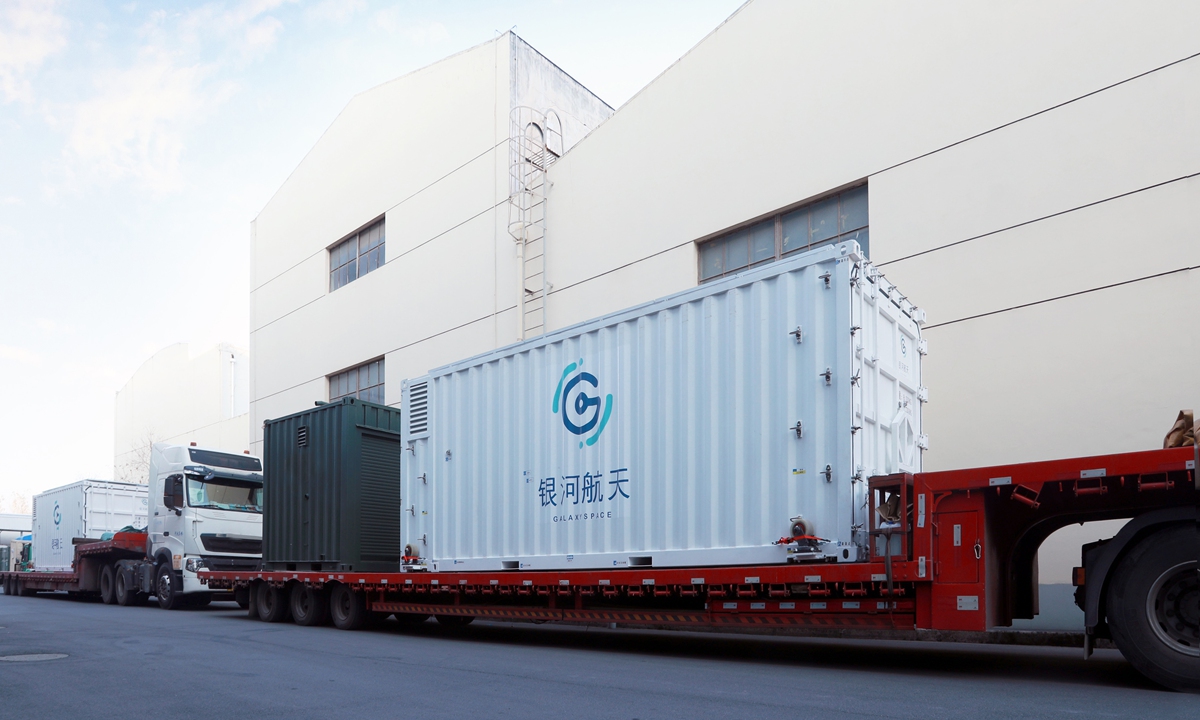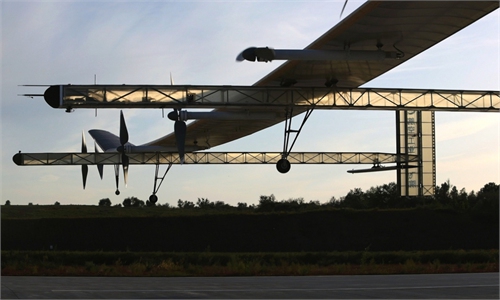
Photo: courtesy of GalaxySpace
Chinese private satellite developer GalaxySpace completed a new round of financing and vowed to speed up the nation's satellite-based internet construction.
With the aerospace companies focusing on commercial applications seeing faster growth, the nation's private aerospace industry has entered a phase of comprehensive development, a Chinese expert said.
After the new round of financing, GalaxySpace's valuation reaches11 billion yuan ($1.58 billion), according to a statement sent to the Global Times by the company on Wednesday.
CCB International led the financing, followed by a fund backed by the government of East China's Anhui Province, along with other investors.
The proceeds will be mainly used for the research and development of satellite-based internet connections and development of commercial applications, Xu Ming, founder and CEO of GalaxySpace, said in the statement.
The company will enhance the development of core technologies such as stackable flat-panel satellites and flexible solar wings, and strive to enhance low-cost satellite manufacturing capacity, so as to march into the 6G era, Xu said.
The commercial aerospace sector has two major branches: rockets and satellites. Chinese private rocket developers have been making headlines with their rapid development, and now with companies that focus on commercial applications seeing faster growth, China's private aerospace industry has entered fast development, Wang Yanan, chief editor of Beijing-based Aerospace Knowledge magazine, told the Global Times on Wednesday.
With the development of both launch vehicles and application satellites, industry players could further expand commercial operations into segments like satellite networks, which have great advantages over ground-based 5G stations, Wang said.
Established in 2018, the Beijing-based GalaxySpace is the first unicorn in China's commercial space sector, committing to low-cost, high-performance small satellites, and building the world's leading low-Earth orbit (LEO) broadband satellite constellation.
GalaxySpace launched six LEO communication satellites on March 5, the company said.
Many other Chinese private-sector aerospace firms have received new rounds of financing recently, such as Shandong-based Orienspace Technology, which completed A-round financing worth 400 million yuan in May, as well as Beijing-based Galactic Energy Aerospace Co, which completed B and B+ rounds in 2021 and raised 1.27 billion yuan, according to media reports.
The private aerospace industry is a capital-, technology- and risk-intensive market. The rising attention of profit-driven capital to this sector tells of the industry's great potential in China, Wang said.
China has been encouraging the innovative growth of the commercial space technology sector. Investors won't miss the opportunity to reap huge long-term benefits generated by these emerging industries, according to Wang.
China's top economic planner, the National Development and Reform Commission (NDRC), added "satellite internet" to a list of "new infrastructure" in a meeting in April 2020. The NDRC also provided a clear definition of new infrastructure, with areas including satellite internet, 5G, the Internet of Things and artificial intelligence to be targeted for investment.

